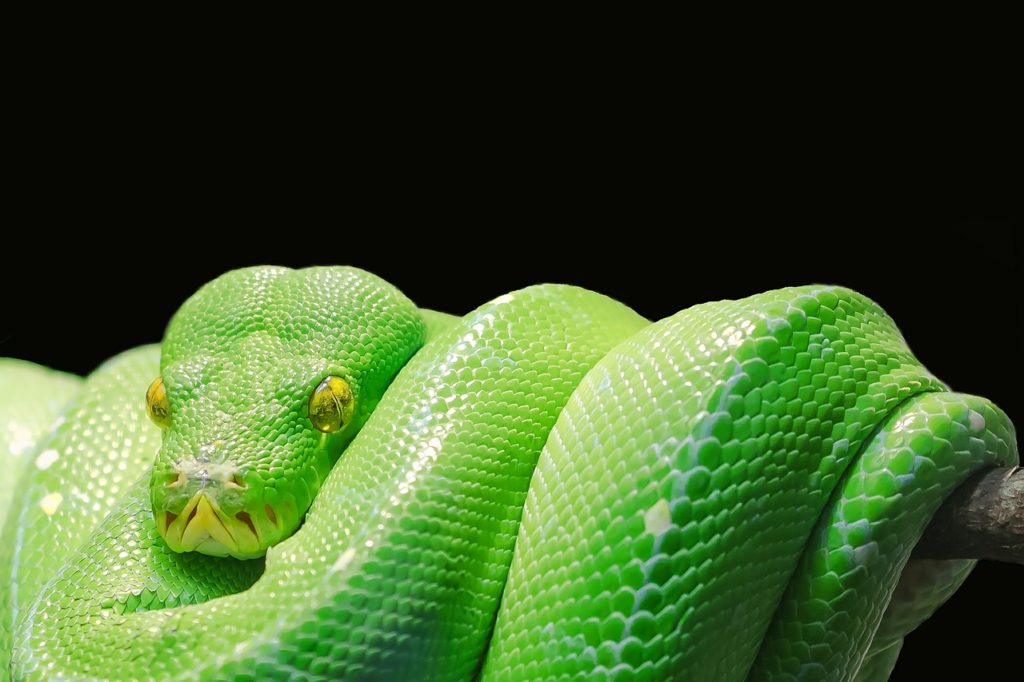One of the best parts of a survival experience is forging a connection with Mother Nature. Unfortunately, Mother Nature also has a pretty strong connection with lots of things that enjoy stealing food, sucking blood, and eating humans.
Wilderness survival means survival in every sense of the word – you’re no longer comfortably at the top of the food chain. But with a little know-how, you can tame the beasts of the wild and be king of the jungle.
Disclaimer: You will not be able to actually tame any wild beasts. “King of the Jungle” is a title reserved by lions and adapting the moniker may be a violation of copyright law.
Fangs of the Venomous Puff Adder
Things That Bite
It’s virtually a guarantee that you will be covered in bug bites during your survival experience. That doesn’t mean you should embrace them wholeheartedly.
Bug bites are a cause of both infection and parasitic diseases. Using proper survival skills will minimize your bites and reduce your risks.
Utilize insect repellent. If you don’t have a bottle (or when your bottle runs out), catnip, wild garlic, and cedar, among others, are natural insect repellents.
If possible, bring a mosquito net or trash bag with you. Cover your shelter entrance with the netting or the bag (cut slits in the bag for airflow). This will reduce the number of bites you get at night and give you a place to hide out during peak bug times. Mosquitoes are particularly active at dusk and at the Adirondacks Blood N’ Brews Festival, which takes place yearly, July 16th, on your face.
To prevent bites from ground insects and spiders, elevate the place where you sleep by constructing a raised bed. And if you’re in place with scorpions, always check your shoes in the morning.
For the bug bites that you will undoubtedly get despite using all the survival skills discussed above, forage some plants for itch relief. The less you scratch, the lower your risk of opening a wound that can lead to infection.
A side note on snakes: while none of the previous advice applies to snakes, they are things that bite. Snakes are generally reclusive, so the best strategy is to leave them alone and quit being such a dick. If you’re interested in hunting them, research any venomous snakes in your area to make sure you don’t make a fatal mistake – but we recommend you consider focusing on rabbits instead.
Lone Fox in the Woods
Things That Eat Your Food
While it’s certainly no fun getting bitten, it’s arguably even less fun to have your food supply bitten. Squirrels, chipmunks, mice, and more may view the little bit of food you have stockpiled as their next meal. Unless you have some sort of dim-witted hunting plan that involves fattening the animals until they’re slow enough for you to catch, it’s best to know how to keep them away.
Keep your campsite clean. When cooking, burn away any food remains and wash dishes if possible. Dispose of any food-related waste away from your campsite. We’re not suggesting that your survival experience involves trimming the fat from your steaks, but even a little bit of bone or grease can be an attractant.
Store food in containers. If you’ve brought some Ziploc bags or other sealed containers with you, congrats. If you haven’t, you probably also don’t have a stockpile of food, so this becomes more of a moot point. If you need something to fill those lonely nights, you can dreamily construct food containers from found materials and fantasize about the day you fill them with foraged harvests.
And hey, if squirrels keep coming to your campsite, make a spear. There’s more than one way to get rid of a pest.
Grizzly Bear in the River
Things That May Eat You
Being eaten by a predator falls under the category of “ways to die”, which is pretty much the only way to fail at using your survival skills. Bears are some of the most common causes of concern in the wild, as they’re naturally curious and frequently scavenge for food.
While the following tips are good for preventing contact with bears, they’re also practical for any type of large, predatory animal. It’s good practice to have some defensive strategies for anything that could take you out and eat you for meat, whether that’s a bobcat or Jeffrey Dahmer.
The survival skills required for keeping away predators are similar to those for pest prevention. Keep your campsite clean of food or food residue and don’t sleep in the clothes you cook in. The US Forest Service recommends keeping a minimum of 100 yards between where you cook and where you sleep.
Keep any food or food-related items in a bear bag and tie it high enough that no predator can reach it (at least 12 feet from the ground). If your survival situation is a dystopia full of genetically mutated carnivorous giraffes, consider raising the bag several feet higher. Actually … just kill yourself. All hope is lost at that point.
If an unwanted animal shows up anyway, be prepared. You can make an intruder alert system with some empty aluminum cans, cordage, and pebbles.
Bring bear spray with you, and keep weapons nearby to fend off anything that gets past your safeguards. Don’t get paranoid, though. If you freak out and stab your hiking partner, the smell of blood is likely to attract actual predators.
